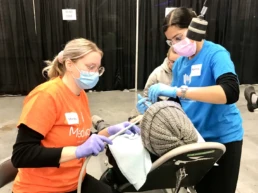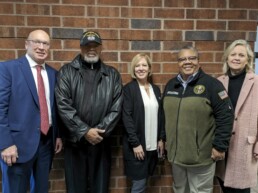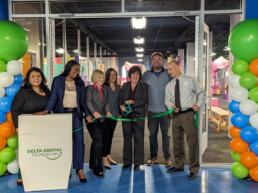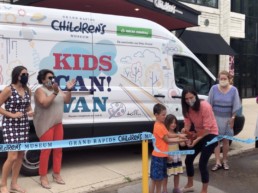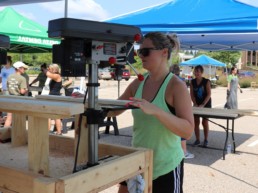Foundation provides emergency aid
In times of change and uncertainty, safety-net dental clinics and nonprofit organizations are asked to do more than ever before.
In March, the Delta Dental Foundation (DDF) created the COVID-19 Emergency Assistance Fund for safety-net dental clinics and nonprofits in Michigan, Ohio and Indiana that work with vulnerable populations including seniors, foster children and low-income individuals, and that provide health and human services or food assistance.
“There is an unprecedented level of need in our nonprofit community,” says Holli Seabury, DDF executive director. “We are aware that our health care providers are facing critical needs, and the nonprofits who provide food assistance are struggling. This fund was designed to help meet the greatest needs of our communities.”
Safety-net dental clinics play a critical role in treating the underserved, uninsured and the Medicaid population, typically the demographic most likely to use the hospital emergency room if they have a dental emergency. However, in the midst of the COVID-19 pandemic it has been imperative that hospital emergency rooms not be overwhelmed with patients who could be treated elsewhere.
Funding went to organizations that provide oversight to networks of federally qualified health centers and safety-net clinics including Michigan Primary Care Association, My Community Dental Centers, Ohio Association of Community Health Centers and Indiana Primary Health Care Association. Emergency dental clinics at University of Detroit Mercy, University of Michigan, Ohio State University and Indiana University also received funding.
Funding also went to food banks and pantries, hospitals, homeless shelters, and other community organizations providing critical services. With unemployment at the highest rates since the Great Depression, these organizations have become overwhelmed by the rising demand for their services. In some areas, the need for food assistance has increased by 60 percent.
In addition to funding, the DDF donated more than 50,000 toothbrushes to grantees, along with educational resources about emergency dental services and how to locate clinics that are open to treat such emergencies.
